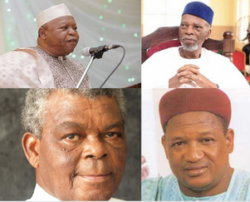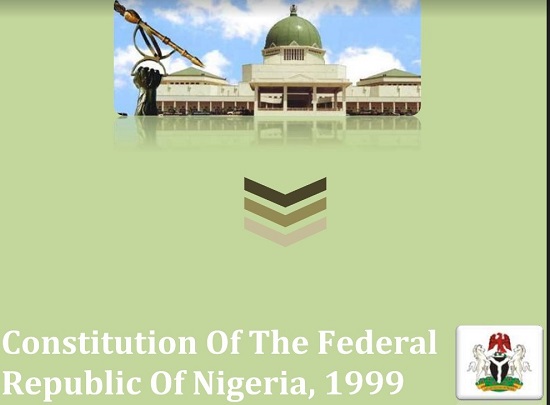Last updated on March 19th, 2022 at 10:44 am
The coming to power of Gen Ibrahim Badamosi Babangida on August 27, 1985, was not just the most dramatic, but also the most turbulent time in Nigeria’s political history.
Seven years after the IBB aka Maradona regime kicked out the military regime of Maj.-General Muhammadu Buhari from power, the Niger-born Army General launched two political parties (NRC and SDP)
NRC means National Republican Convention while SDP stands for Social Democratic Party.
Politicians contested under the two political parties at the local, state, and national platforms.
At the state level, politicians won the governorship election, though, Babangida later annulled the June 12 1993 presidential election which Chief Moshood Kashimawo Abiola won overwhelmingly.
So…
Who are the state governors in Nigeria during IBB regime?
The IBB regime would have been Nigeria’s third republic, unfortunately, it was aborted by his military regime over his plan to hand over power to another Northern military general, Sani Abacha
After the 1991 governorship elections, the 30 elected state governors were sworn into office in January 1992.
Surprisingly, M.K.O of SDP won the presidential election that later followed. He also won in the Northern part of the country where his contender came from.
Out of the 30 states, NRC won the governorship in 16 states while the SDP won in 14 states
Below is a list of elected state governors during the Babangida regime
| S/N | State | Governors | Political Party |
| 1 | Abia | Ogbonnaya Onu (now the minister of Science and Technology) | NRC |
| 2 | Adamawa | Abubakar Saleh Michika | NRC |
| 3 | Akwa Ibom | Akpan Isemin | NRC |
| 4 | Anambra | Chukwuemeka Ezeife | SDP |
| 5 | Borno | Maina Maaji Lawan | SDP |
| 6 | Benue | Moses Adasu | SDP |
| 7 | Bauchi | Dahiru Mohammed | NRC |
| 8 | Cross River | Clement Ebri | NRC |
| 9 | Delta | Felix Ibru | SDP |
| 10 | Enugu | Okwesilieze Nwodo | NRC |
| 11 | Edo | John Odigie Oyegun | SDP |
| 12 | Imo | Evan Enwerem | NRC |
| 13 | Jigawa | Ali Sa’ad Birnin-Kudu | SDP |
| 14 | Kaduna | Mohammed Dabo Lere | NRC |
| 15 | Kwara | Shaaba Lafiaji | SDP |
| 16 | Kogi | Abubakar Audu | NRC |
| 17 | Kebbi | Abubakar Musa | NRC |
| 18 | Katsina | Saidu Barda | NRC |
| 19 | Kano | Kabiru Ibrahim Gaya | NRC |
| 20 | Lagos | Michael Otedola (father of Femi Otedola, the billionaires) | NRC |
| 21 | Niger | Musa Inuwa | NRC |
| 22 | Ogun | Olusegun Osoba | SDP |
| 23 | Oyo | Kolapo Olawuyi Ishola | SDP |
| 24 | Osun | Isiaka Adeleke (elder brother to Ademola Adeleke) | SDP |
| 25 | Ondo | Bamidele Olumilua | SDP |
| 26 | Plateau | Fidelis Tapgun | SDP |
| 27 | Rivers | Rufus Ada-George | NRC |
| 28 | Sokoto | Yahaya Abdulkarim | NRC |
| 29 | Yobe | Bukar Abba Ibrahim | SDP |
| 30 | Taraba | Jolly Nyame | SDP |
How many states did Babangida create?
Babangida created 11 states through his military administration. Two states-Akwa Ibom and Katsina-were created on September 23, 1987. On August 27, 1991, the Babangida regime created nine more states to bring the total number to 30.
What are the state created in 1991?
The states that were created on August 27, 1991, by IBB are:
1. Abia
2. Delta
3. Enugu
4. Kebbi
5. Jigawa
6. Kogi
7. Osun
8. Yobe
9. Taraba
How many governors did Nigeria have in 1992?
Nigeria had 30 state governors from 1992 till November 1993 when Sani Abacha sent Earnest Shonekan packing from the Aso Rock
Who was Osun State deputy governor in 1992
Prince Adesuyi Haastrup was the deputy to Otunba Isiaka Adeleke between 1992 to November 17, 1993
Why was the third republic aborted by Babangida?
It was called aborted because the Babangida regime refused to hand over to the winner of the June 12, 1993 presidential election. Instead of handing over, he brought in an Interim government which was completely strange to the constitution of Nigeria and paved the way for Sani Abacha
Note:
The state governors during the regime of Babangida were in office from January 1992 till November 1993, when Sani Abacha overthrew the Interim National Government initiated by IBB (after he failed to swear in the winner of the June 12, 1993, Presidential Election).







